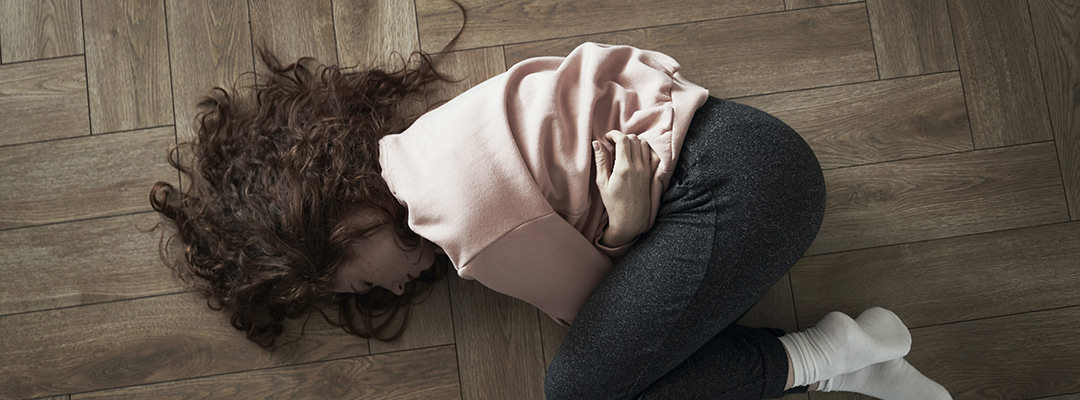Many of us have experienced grief at some point in our lives. Those of us who have had to live through the agony of loss know what a horrible effect it can have on all aspects of our health, including our sleep patterns. And when we don’t sleep well, our bodies and our minds suffer and we have a harder time dealing with the challenges the day brings.
Let’s take a look at how grieving affects our well-being and how taking care of our sleep health can help guide us on the road to better days ahead.
What causes grief?
Many people associate grief with bereavement, or mourning a person who has died. This can certainly be a powerful and damaging source of grief, but grief can arise from other things too. Grief can come from a breakup or divorce, from growing away from an old friendship, or losing an important opportunity or career.
You can experience grief for anything that you’ve lost where that loss leaves a painful emptiness behind. Whether you’re mourning a deceased relative or a life path that has become closed off to you, these feelings of loss can have a profoundly damaging impact on your sleep and your health as a whole.
How does grief affect our health?
Grief doesn’t just cause sadness; it negatively affects us on every level. Let’s take a closer look at each way grief impacts our health.
Emotional health
We all know that experiencing loss can play havoc on our emotional state of being. Grief and bereavement are linked to heightened anxiety and depression, especially if the grief continues unaddressed. When we don’t process our grief properly, it moves into what’s known as chronic grief or complicated grief disorder. This means that the loss doesn’t integrate into our daily lives the way it should, but instead feels fresh and damaging each day. Unsurprisingly, unresolved grief can lead to chronic sleep disorders such as insomnia. A lack of healthy, stable sleep and an overdose of grief combined can have a negative effect on every aspect of your waking life.
Physical health
When you’re grieving someone or something lost, your brain can start to register the entire world as a threat and start releasing more stress hormones like cortisol. Your body can also suffer from inflammation as it registers the subconscious threats in your environment. Both of these can lead to higher risk of heart attack, a weakened immune system, and increased blood pressure. When your body is producing more stress hormones at all hours of the day, it becomes a lot harder to fall into a restful sleep. As a result, your sleep cycle will suffer and you’ll feel exhausted in the morning, but your body will still be reacting as though it was facing down a physical danger.
Cognitive health
Many people find that when they’re grieving, their brains can feel like they’re shutting down and not functioning as efficiently. This is largely because our brains are trying to protect us from feeling too much too suddenly, so it begins to filter our experiences. This can manifest as hazy thinking or impulsive decision-making. In our sleeping life, some of these unresolved thoughts and feelings might manifest as nightmares.
How can we sleep better through grief?
Now that we know more about how we’re impacted physically, mentally, and emotionally by times of grieving, what can we do about it? Let’s look at how to get the safest, healthiest sleep possible while we work through difficult times.
Keep a journal
Some people find that writing about their feelings in a journal before bed can help ensure a better, deeper sleep. This is because you’re able to get some of those unprocessed feelings down on paper instead of cycling through them in your mind as you try to fall asleep. Grief can be a complex web of unresolved issues including anger and resentment, which we may not even be consciously aware of.
If you try freewriting in a journal at bedtime, you may be surprised at which unexpected feelings are demanding attention. This gets them out of your system so that they don’t keep you up as your mind tries to process them at night. You can also try closing your nighttime journal entries with an affirmational message to your mind, such as “Tonight I will sleep deeply and peacefully until morning.”
Take care of your body
With both grief and sleep deprivation ravaging your bodily health, taking care of your physical well-being is paramount. During this difficult time, take a hard look at your diet and try to eat well-balanced, nutrient-rich meals that will help you function at your best. When we’re in mourning and deprived of sleep, it’s tempting to simply eat microwaved mac and cheese every night for a month; the urge is understandable, but if you manage to sneak in some healthy salads and traditional dinners, you’ll feel a lot healthier in the long run.
Also try to get some physical exercise during the day, as well as some good old-fashioned sunlight. If you can force yourself to stay active and get outdoors, you’ll see an improvement in both your ability to fall asleep at night and your physical well-being over time.
Seek grief supports
When we grieve our tendency is to isolate, but this can be dangerous and even exacerbate the effects of both grief and poor sleep habits. Talk to friends and family, and consider the help of a psychiatric professional in processing any unresolved feelings that are keeping you from sleeping. They can prescribe medication and thoughtful exercises to help you work through difficult moments.
Taking advantage of available support during times of grief can help keep your pain manageable so it doesn’t become chronic or turn into complicated grief disorder, as we looked at above. There is a wide range of support networks available in every country for every circumstance.
Create a safe sleep space
With our minds treating the world as an unsafe environment during times of grief, it’s especially important to create a sleeping space where you feel safe in. This can be especially difficult if you’ve lost a partner or a pet whose absence is keenly felt in your bedroom, which makes it more important than ever.
Everyone’s perfect sleep environment is different, so explore what makes your bedroom feel like a tranquil, supportive space for you. You can use all your senses to find what works best. You might feel safest with warm, soft fabrics, with comforting smells, or with relaxing music. The idea is to create a space where your grief isn’t compounded, but rather one that represents a retreat from the outside world. You can even reach out to family and friends to help with this, and look at it as a creative healing project.
Going through periods of grieving can be some of the most difficult and strenuous that we experience in our lifetimes. It can be difficult to remember to put ourselves first, and the world can feel like a scary, aggressive place. We cannot undo the events and actions that cause our grief in the first place, but by keeping these tips in mind, we can make our path a little easier as we move into a happier, healthier future.
Did you like it?4.3/5 (23)





